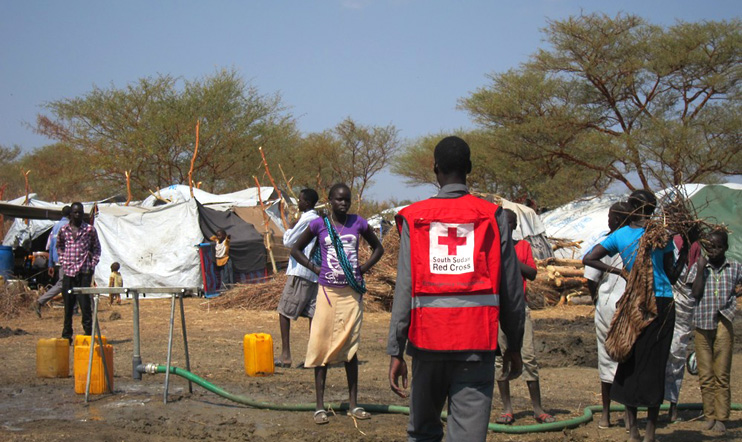Thousands of people have been displaced by renewed fighting in Unity state over the past week. The International Committee of the Red Cross (ICRC) and the South Sudan Red Cross are responding to the needs of displaced people in Leer, where thousands of civilians have fled armed clashes and other violence.
To help treat the sick and the wounded, the ICRC has sent a surgical team to Leer and has also donated medical equipment. It is coordinating its actions with those of the South Sudan Red Cross (SSRC) to deliver aid to the displaced as efficiently as possible.
“Many women and children have been taking refuge wherever they can find it,” said Jerome Imstepf, who is in charge of the ICRC’s operations in Unity state. “Because the situation in this state is so volatile, we don’t know what it will be like tomorrow. But the ICRC and the SSRC will do everything we can to help the people affected by the fighting here.”
“We are particularly concerned about access to health care,” he added. “We are reminding all parties to the conflict that civilians must be protected from attack, and that people must be allowed safe access to medical treatment.”
Even before the latest clashes, ICRC surgeons based in Bentiu, the capital of Unity state, had performed over 75 operations on people wounded in the fighting, and the organization was providing clean drinking water for over 3,000 displaced people.
Since the beginning of the crisis, the ICRC has:
- sent 4 surgical teams to hospitals in Juba, Malakal, Bentiu and Leer to provide emergency and trauma care for hundreds of wounded patients;
- delivered one-month food rations for nearly 60,000 displaced people in Awerial, nearly 35,000 of whom were also given cooking kits, blankets, and tarpaulins;
- provided hospitals in Juba and Bentiu with enough medicines, wound-dressing materials and other medical supplies to treat up to 750 wounded patients;
- delivered over 200,000 litres of clean water, built four latrines and set up seven tents to expand patient wards in one of Juba’s major hospitals;
- provided tarpaulins for 12,000 people and tents for 7,200 others in a camp for the displaced in Juba;
- helped family members separated by the violence get in touch with their loved ones by giving them the opportunity to make phone calls or by collecting and delivering written messages;
- registered unaccompanied children with the aim of reuniting them with their families.
The ICRC is scaling up its work in various areas of South Sudan. Together with the South Sudan Red Cross, it will take further action as the security situation permits.


